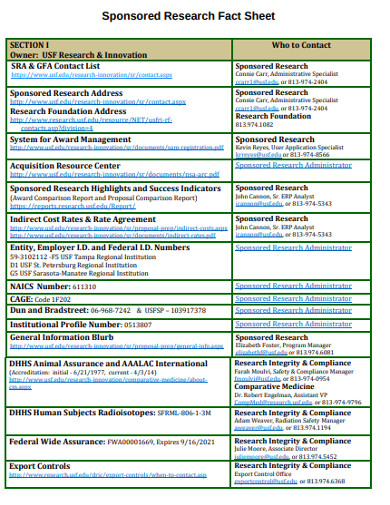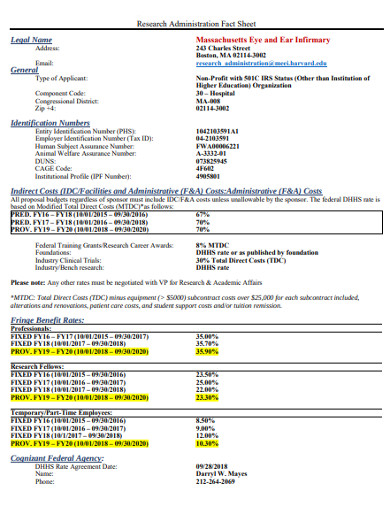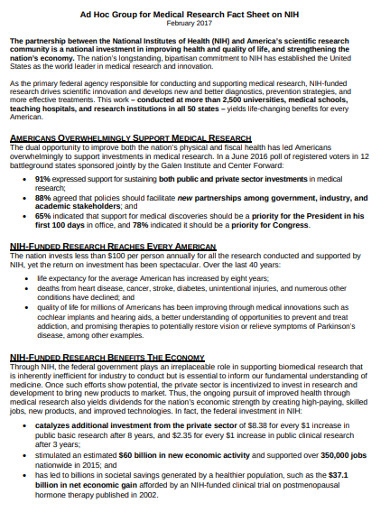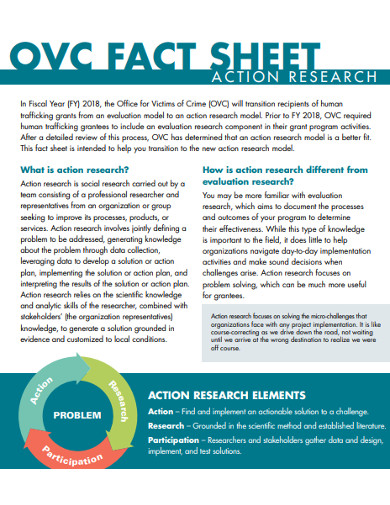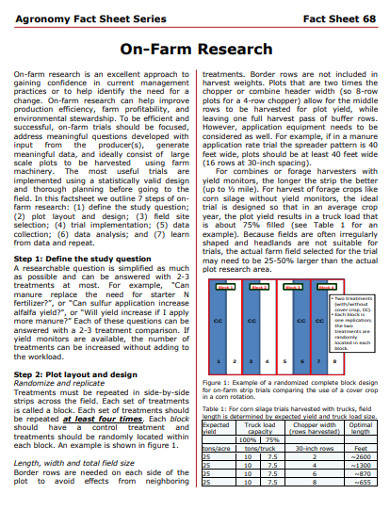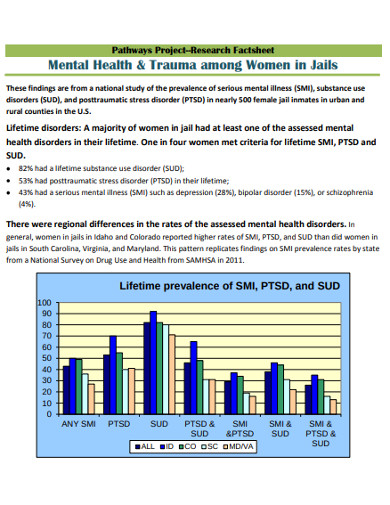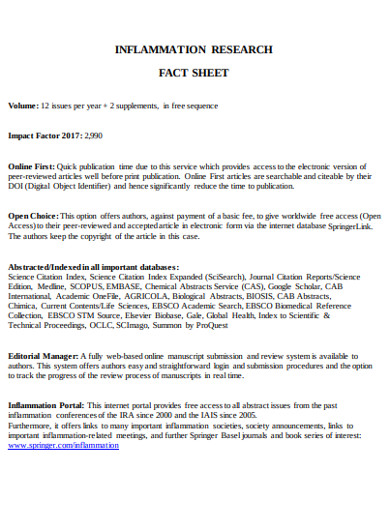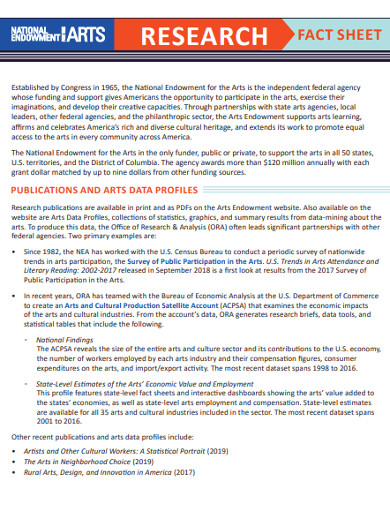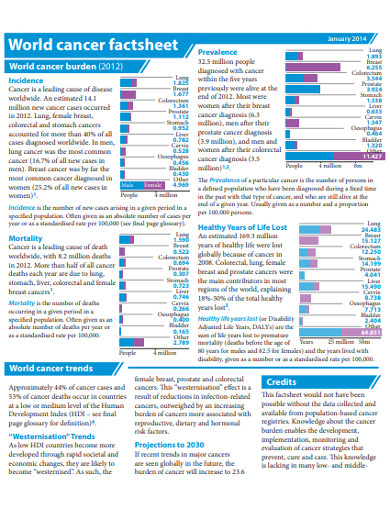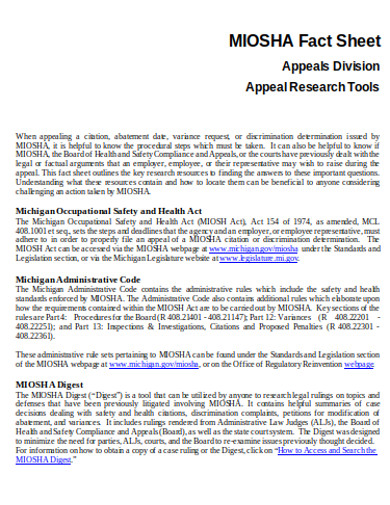10+ Research Fact Sheet Examples to Download
There was a circulating claim that human attention is now less than a goldfish’s. Although the report isn’t grounded on credible and replicable data, it got us thinking about how ephemeral our attention span really is. It might not be life-threatening, but it becomes worse when we face articles and prints that are just blatantly mocking us with pages upon pages of the tiny font size. Instead of reading several pages to extract a sentence or two, don’t you think it’s time for research fact sheets to become a learning aid for students?
A research fact sheet is a printable one-page summary of the highlights of an article or report. It presents data in a concise and absorbable format that is easy on both the eyes and the mind. Apart from being useful in colleges and universities, this informative document is also beneficial to businesses and organizations. A research fact sheet can help companies present their products, services, programs, and initiatives for the public’s benefit. Because it takes so much to keep the human brain focused on a task or activity, bite-size versions of data will aid in keeping us informed before our attention meter runs out.
Screen-Focus Correlation
It is hard to claim that our attention span is shortening because today, there is no standardized method for measuring attention span—it remains subjective. Therefore, we can only be certain that we are having difficulty concentrating. There is a correlation between this difficulty to finish our reading list and the things we are looking at our phones, tablets, and computers.
Although we aren’t necessarily as focus-deficit as initially claimed, humans having a limited attention span has a certain truth. We are bombarded with so many stimuli that if our nervous system were receptive to all of them, we would be experiencing intolerable sensory overload every day. To keep us alive and sane, our brains only process crucial information. Thus, we only pay attention to the things that matter or what we think matter.
We can point to how we are utilizing technology as one of the reasons why it is hard to focus these days. The Internet era created digital copies of things from work to leisure. We are reading magazines, listening to the news, sending messages, and watching the world all in the comforts of our screens. Going digital is not evil. For instance, we are saving paper by subscribing to screen versions of the news and articles. Media companies also enjoy the new ways of delivering content that wasn’t possible with two-dimensional prints.
The kind of content we consume is what’s hurting our ability to focus. Apps and websites are taking advantage of the visual nature of humans. With strategic images, colors, typefaces, fonts, and a steady stream of content on our screens, we are always visually stimulated. When we divert our attention to the three-dimensional reality, our brains miss the kind of stimulation we are getting from phones and laptops. Our tolerance for still and slowness is getting shorter and shorter. After looking at still images and colorless textbook pages, we quickly lose interest.
Our difficulty to maintain focus can impede our work and learning. And the first step we can take is recognizing that this is a problem. However, we can’t abandon phones and computers altogether. So, our next best alternative is working with what we have. Fact sheets offer a temporary remedy to learning. By summarizing the research, we can still gain information about specific points of interest, and the task will be easier for our brain.
10+ Research Fact Sheet Examples
The following useful fact sheet examples and templates illustrate how big data can be summarized into bite-sized one-page information. Besides their promising role in education, they are also useful outside the classroom, such as in companies and other establishments.
1. Home Equipment Research Fact Sheet Example
2. Sponsored Research Fact Sheet Example
3. Research Administration Fact Sheet Example
4. Group for Medical Research Fact Sheet Example
5. Action Research Fact Sheet Example
6. On-Farm Research Fact Sheet Example
7. Mental Health Research Fact Sheet Example
8. Inflammation Research Fact Sheet Example
9. Art Research Fact Sheet Example
10. Cancer Research Fact Sheet Example
11. Research Fact Sheet in DOC
Preparing Research Fact Sheets
The goal of research data fact sheets is to hold an audience’s attention long enough for them to be informed. Here is how you can prepare such an effective learning aid:
1. Outline your Information
Research and learn about the topic you had in mind. You can’t inform people about something you don’t know about. After gathering the necessary information, picture how your fact sheet would look like. Using an outline, prepare a map of where the information would go. It is important to have a well-organized flow of information to make it easier for the readers to follow.
2. Choose Strategic Colors and Images
Part of the charm of research fact sheets is that they convey a mass of information in the less conventional way: imagery. Note that the human eyes are attracted to warm colors. However, you can also use cool hues, provided that they are appropriate for the information you presented. Moreover, remember your audience when creating a fact sheet. Make sure that the presentation of information and illustrations is suitable for their learning level.
3. Write an Interesting Header
Aside from colors and pictures, a catchy title will capture the attention of readers like in article writing. It can’t hurt to provide a small dose of appropriate humor in your header while maintaining the formality of the document. Intrigue will keep your audience reading. You may opt for a witty remark or clever wordplay followed by a colon and the formal title.
4. Support Material with Data
Research fact sheets are informative reading materials. Therefore, existing studies and statistics should support the things you present in the document. You should also cite your sources so as not to mislead the readers. Information becomes more credible and reliable when you can back it up with science and hard facts.
Research fact sheets highlight important information about a topic. They provide interested persons with a summary of a report, article, study, or the compilation of those without misleading the audience. Fact sheets help us circumvent the issue about our focus by taking advantage of what we pay attention to. And although it is a fascinating proposition, perhaps the reason why we didn’t spot the holes in the goldfish study ourselves was that we didn’t finish reading a lengthy article about it, fixating only on goldfish and 8 minutes.




